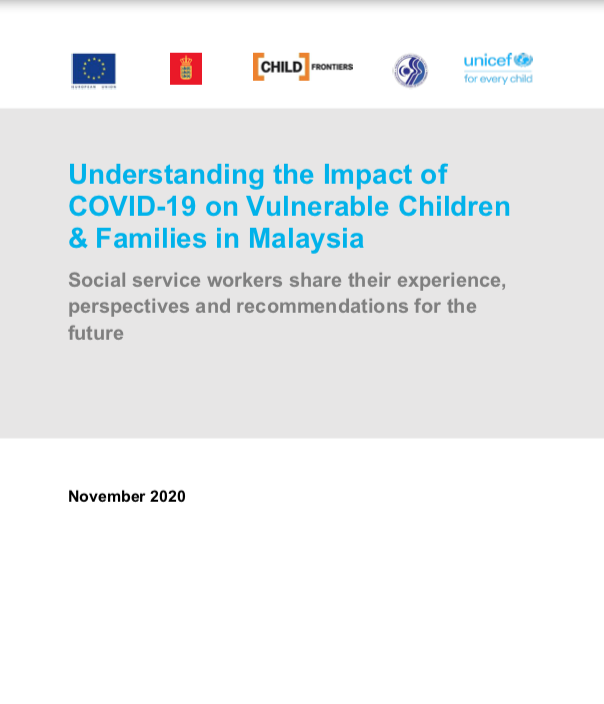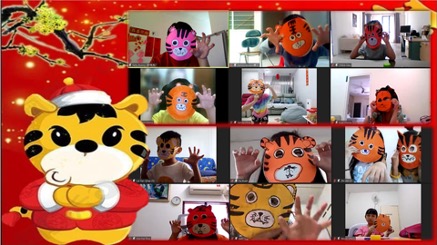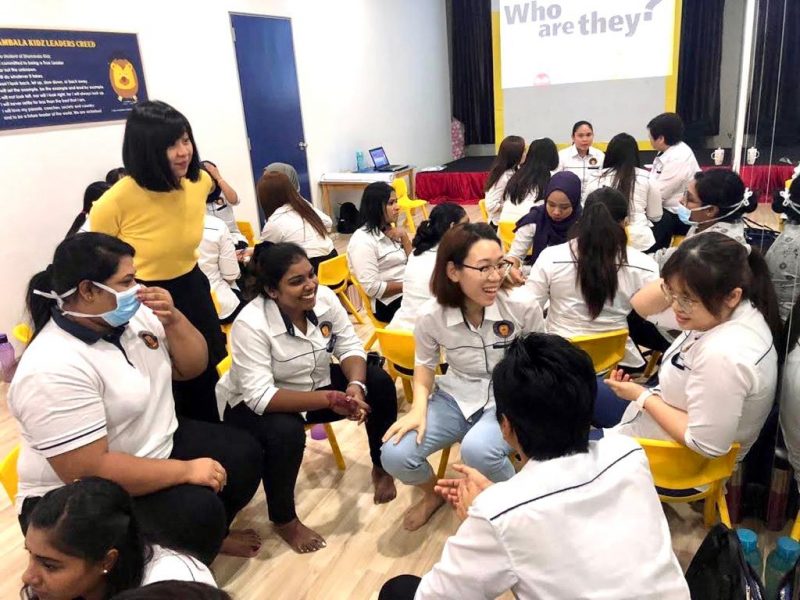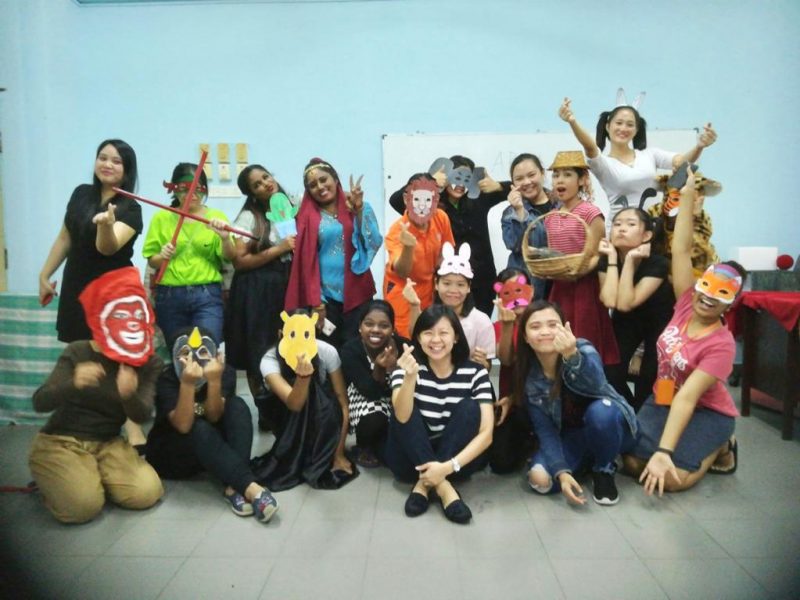22 Mar The Aftermath of COVID-19 on Children with Special Needs
Industry Insights
The Aftermath of COVID-19 on Children with Special Needs

Venus Lim, Head of School, Special Education Needs, Dika College, shares her thoughts on how the COVID-19 Pandemic is impacting the lives of children with special needs, her insights on how we can each play our part, and her optimism that things are moving in the right direction.
Panic and realisation
When the first lockdown was announced on March 18, 2020, Venus Lim, Head of School, Special Education Needs, Dika College, thought, “Things will be over soon.” Little did Lim expect that the nation and the world would come to grapple with almost two years of intermittent lockdowns and uncertainty.
As panic gave way to realisation, Lim, as with many other educators, decided that they had to move on for the children’s sake. “We had lost precious time, and as with all children, time spurs progress or dictates regression,” said Lim.
Too much to bear

Source: UNICEF
A UNICEF report on the Impact of COVID-19 on Vulnerable Children & Families in Malaysia underscored the fears and stress from lockdowns that were especially difficult for low-income families, single parents, unemployed families and families with children with special needs. “The stress experienced by adults affected children mentally as it does physically,” explained Lim. “It doesn’t help when schools had to close and children had to learn from online platforms,” she added.
The United Nations estimates one in six people in the region live with some form of disability. Since the Pandemic broke out at the end of 2019, reports across the Southeast Asian region had shown that children with disabilities may be losing hard-won education gains when learning went online.
A regional predicament
According to a South China Morning Post (SCMP) report, in Hong Kong, there had been an “exponential” increase in the number of children being referred for help with self-regulation, anxiety, and communication issues.
In the Philippines, children with neurodevelopmental disorders may be at higher risk of suicide when placed in environments without support, noted SCMP. In India, the same report highlighted that children on the autistic spectrum are finding online learning “an exercise in frustration”.
In Malaysia, similar sentiments resonate. Lim pointed out a recent article by The Star highlighting that children with neurodevelopmental disorders, especially those under the age of 12, are in danger of losing the skills needed to be self-sufficient and be part of society. However, Lim opined that things could have been far worse had the Pandemic struck a decade ago.
Timing has helped ease the burden

Early Childhood Education Takes Online
Source: Radha Lim Bang Seng Facebook
Consider the world a decade or two ago. “There was no Zoom or Google Meet. Even Facetime didn’t exist until 2010. Affordable high-speed fibre broadband was limited,” said Lim. “Digital technology is enabling real-time tracking of infections, with information pushed out via the likes of WhatsApp, founded in 2009,” she added.
Interestingly, Lim enthused, “Technology gave and continues to give us courage,” citing that it empowered educators, parents and stakeholders to embrace a new way of sharing knowledge. “Some early childhood educators took to digitalisation with ease,” illustrated Lim, referring to Dika alumnus Lim Ban Seng, whose migration to virtual classes took place within a week of the March 18, 2020 lockdown. However, Lim said, “Transitioning to online teaching and learning is not without its challenges.”
Steep learning curve
Lim shared, “The Pandemic heightened concerns of children being able to cope with the demands of online learning. It is therefore imperative that educators address the mental health of the student first before any effort to deliver an academic programme can take place,” emphasised Lim. “So, building a trusting relationship where children feel safe is important.”
For Lim, the experience to equip herself with the adeptness to develop content and teach virtually was and still is a steep learning curve. “I had to do a lot of research by reading and looking up what others were doing in Malaysia and elsewhere. There was something new to be learned every day, which was exciting and motivating. I had to find a way to deliver this knowledge to the would-be educators in my class,” said Lim, adding that she was always inspired by the commitment to reach out displayed by all stakeholders.
Moving in the same direction

Lim is a frequent presenter at workshops to help stakeholders better understand the
dynamics of educating those with special needs. Filepic.
“I have seen NGOs extending support in terms of cash and kind to families of children with special needs. I know of speech and occupational therapists that continue to do free home visits to ensure that children get the continued support they need,” said Lim. “There is also a commitment from the public and private sector to offer support to parents.”
Lim was also keen to mention that the Malaysian Government is making a significant effort to develop new e-learning approaches for special needs education that engage children and pursue inclusion. The Star quoted National Association of Special Education honorary secretary, Prof. Loh Sau Cheong, as saying, “Inclusion can be realised more easily now given that lessons for children with learning disabilities can take place anywhere, anytime, and with anyone via an online platform.”
I am optimistic

Special Needs Educators play an important role in the lives of those with special needs.
“There are no examples to learn from, no case studies to fall back to and least of all, blueprints and guidelines to refer to. The world has never faced a crisis such as this. But everyone had a clear vision. We turned to what we did have, our human resilience and the strength of spirit. Most of all, we looked to one another for support,” said Lim.
“To parents and teachers. Your tasks are by no means easy. Challenges will continue but curiosity is our best ally. Do what you love to do and do what you can. Every day is a new day that brings new hope. So, do your best and above all take care of yourself,” said Lim.
Lim also shared, “Look around. There is no avoiding or ignoring the needs of those with special needs. If there is one thing the Pandemic has shown us, it is that we all belong to one big family. Therefore, do not let fear keep us from doing our part as a member of society. Be aware, be sensitive and be there for one another.”
References
Bernama. (2021, May 26). Unicef Malaysia: Data of children with Covid-19 a wake-up call for all. Retrieved from News Straits Times: https://www.nst.com.my/news/nation/2021/05/693308/unicef-malaysia-data-children-covid-19-wake-call-all
Bhattacharjee, R. B. (2021, March 22). Online education divide needs ‘collective impact’ solution. Retrieved from The Edge Malaysia: https://www.theedgemarkets.com/article/online-education-divide-needs-collective-impact-solution
Devinney, T. (2020, April 28). What would have happened if the coronavirus had struck in 1999? Retrieved from RTE: https://www.rte.ie/brainstorm/2020/0428/1135244-coronavirus-1999/
Kok, X., Dhillon, A., Robles, R., & Daniele, U. (2022, February 26). From Hong Kong to Malaysia and India, how online learning failed special needs students during the Covid-19 pandemic. Retrieved from South China Morning Post: https://www.scmp.com/week-asia/health-environment/article/3168341/hong-kong-malaysia-and-india-how-online-learning
The Star. (2020, June 28). Don’t leave special students behind. Retrieved from https://www.thestar.com.my/news/education/2020/06/28/dont-leave-special-students-behind
The Star. (2021, February 23). Special needs children regressing as families struggle amid pandemic. Retrieved from https://www.thestar.com.my/news/nation/2021/02/23/special-needs-children-regressing-as-families-struggle-amid-pandemic
UNICEF Malaysia. (2021). Understanding the impact of COVID-19 on vulnerable children & families in Malaysia. Retrieved from https://www.unicef.org/malaysia/media/1916/file/Impact%20of%20COVID-19%20on%20Vulnerable%20Children%20&%20Families%20in%20Malaysia.pdf
Villano, M. (2020, September 24). Students with special needs face virtual learning challenges. Retrieved from CNN : https://edition.cnn.com/2020/09/24/health/special-needs-students-online-learning-wellness/index.html
Yeo, A. (2021, February 7). Mental health is critical and needs to be addressed. Retrieved from Th Sun Daily: https://www.thesundaily.my/local/mental-health-is-critical-and-needs-to-be-addressed-IE8024831



Sorry, the comment form is closed at this time.